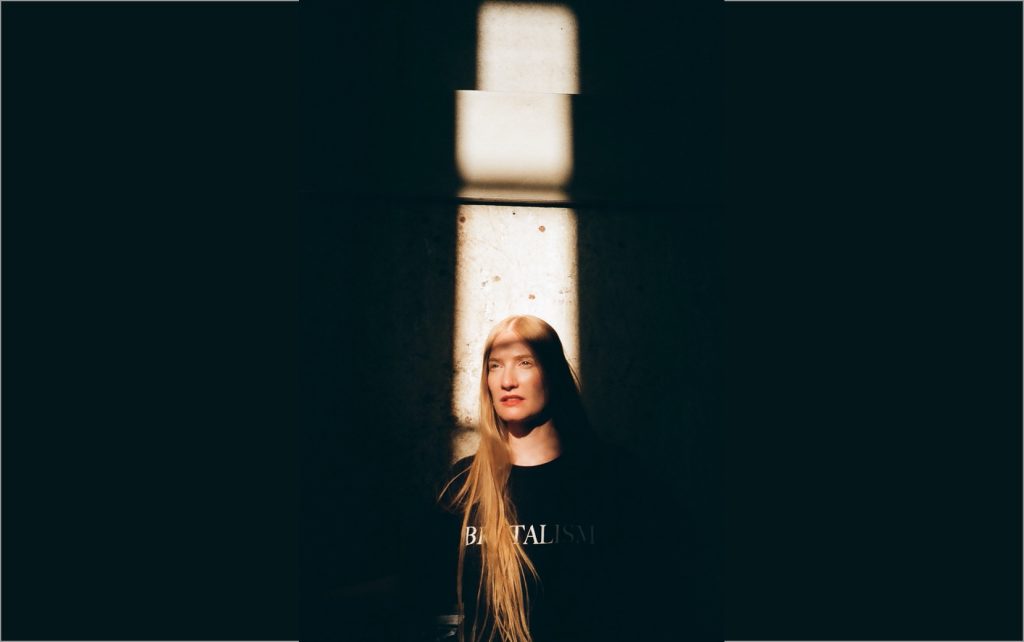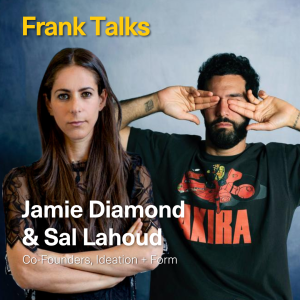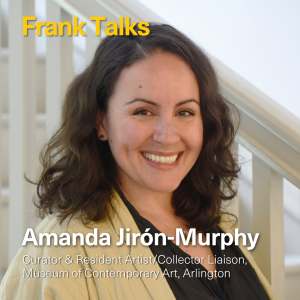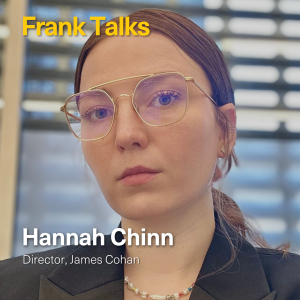We are thrilled to bring you this week’s Frank Talk with Juliet Kothe! Juliet is the director of the Boros Foundation in Berlin, Co-Founder of COLLECTION NIGHT Berlin, and Curator of the Nairobi and Berlin based NGO One Fine Day. She studied cultural studies with a focus on sociology of the arts. She lives and works in Berlin. Please enjoy reading Juliet’s art world insight below!
What was your first job in the Arts?
I studied cultural studies- focusing on the sociology of the arts and being interested in writing about cultural topics. I was the editor of a corporate publishing magazine whose art direction was taken care of by Christian Boros’ agency. This was in 2008 when Christian also opened his private art collection to the public. I visited the Boros Collection and was so amazed by the building – it is a Second World War bunker! The bunker’s specific architecture and the artists exhibited was so monumental that I asked him if I could work in his (then) quite small team of art mediators. So actually, my first job in the arts was the starting point of a career in art that found its current end at the exact same place being now the Director of Karen and Christian’s Collection.
What was the most useful or important thing you learned at that job?
I believe that one can mediate different concepts of artistic production to everyone. If you are empathetic and adapt your narrative, you will allow people from all kinds of backgrounds to encounter with art: children as much as businessmen. Art can truly uncover our embedded rationalities. In the end our value system and societal procedures are based on fictional narratives that we just got to used to until a point of were things seem to be “natural”, “logical” or just given. Artists provide perspectives that are not common sense following the main idea of Schopenhauer: ‘the world is will and imagination.’
How do you experience the art community in Berlin?
Berlin is still non-commercial in comparison to other art capitals like Paris, New York or London. That has its downsides – regarding bad infrastructures for example (I mean nearly no international flights so far) – but also it nourishes diversity on all levels. Nowhere else have I experienced that money, background or “success” is not important for being part of a social cluster like the art community, which normally tends to be very exclusive. You can live a very dialectic life: high and low, established and contemporary, all these contradictions fall together in these hyper post-modernistic lives.
Has where you come from shaped what you do in the arts today?
Not really. My parents were very interested in art, but in a very different, more conservative way. My aunt was an art collector of contemporary art. But for me it was more that I in general felt attracted to charismatic fields that have a huge expressive aspect. I liked the story-telling aspect of art and above all the freedom of defining your own perspectives on basically anything as an artist. It was pretty much when I moved to Berlin that I was sure to dedicate my career to art.
What is the best piece of advice you can give about working in the art world?
Try to stay sensitive towards artistic production. Don’t forget that even if your job might mostly be about selling, that most likely that wasn’t the reason to enter this field. Stay in touch by going to studios – that’s where I learn the most and widen my understanding.
What is one of your greatest accomplishments in your career so far?
The people I meet and continue meeting.
What has been a challenge for you?
Work life balance in the art world is incredibly difficult. Your private life and your art life are inseparable. You have to learn to deal with that. Once you get used to it, this is of course great, because everything you do feels less like a job-duty, but also often your private life feels also part of a professional world.
What defines a good employee? What defines a good boss?
The core of what I expect from my team is self-responsibility. If you act in a responsible way you gain trust. I don’t like to control people or be bossy, I like eye-level contact, but for that I absolutely require that duties are understood well. I think focusing on “failure” too much often distracts from the bigger picture as well. Everyone makes mistakes, I do too, it is normal and human and I just (again) ask for a transparent and responsible handling of things that go wrong. I like ambitious people, because it is them who are worth supporting. You can’t convince anyone to challenge oneself to get the best result possible, it’s an inherent thing. Christian is a good boss, because I feel trusted and free in developing my own strategies and structures. So pretty much my relationship with him continues with my handling of the team.
What do you think makes a person hirable?
I search for personalities, for individual perspectives. I don’t care about conventional CVs. My team ranges from 20 to 40-year-old people – artists, performers, architects, fashion-, product- or graphic designers. They all share a very unique approach towards artistic production. Each tour happening in the bunker is different, because these great people are the communicative filter for the different artistic concepts.
What is your advice to making yourself stand out in your workplace?
Be a team player, be supportive, be precise, and be reliable.
What are things you can do proactively boost your CV?
Its not about a CV, its about naturally and ambitiously trying to engage with the topics of your interest. Say yes, if you are given opportunities, don’t be afraid to test your limits, but don’t do steps too early. I often had to apply twice in order to get an internship or even my studies – but in the end I mostly always succeeded. It helps being clear about what one wants. And if you don’t know, try out as much as possible. Stimulate yourself, because one thing always leads to another.
In your experience, what are things to do and things to avoid during an interview?
Stay loyal to former employers; ask questions to signal your interest, be on time, be you.
Any other anecdotes about your experience in the art world that you would like to share?
So many…
What is the best exhibition you have seen in the last year?
I was blown away by Kai Althoff’s show at Tramps NY at the end of last year, then the Schinkel Pavillon exhibition Straying from the Line which was an exhibition dedicated to a wider perspective on feminist tendencies in the art of the past 100 years. Also the exhibition design by Substanz und Inhalt was great.
If you could own a work by 5 different artists, who would be in your collection?
Puh… that’s a hard one… impossible to select!




